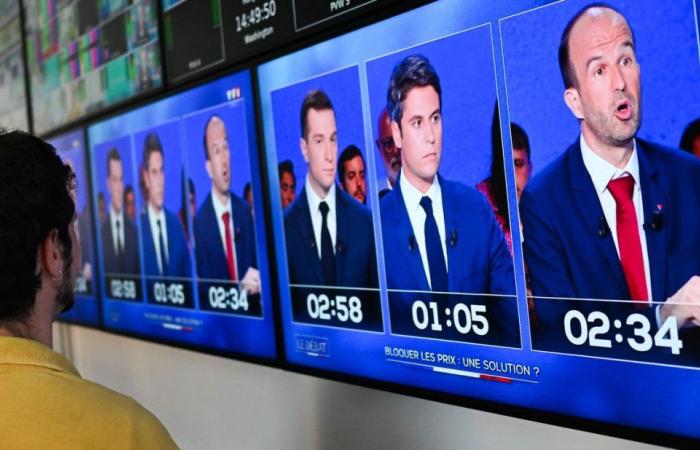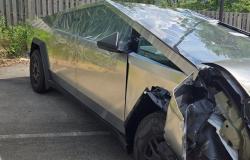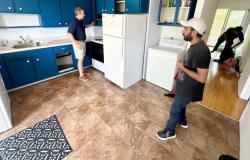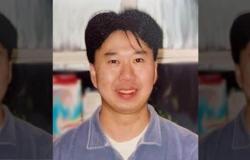– France faced with a historic choice
French voters are called to the polls this Sunday for a historic election.
Representatives of the main parties during the debate organized by the TF1 channel, June 25, 2024.
AFP
Subscribe now and enjoy the audio playback feature.
BotTalk
A historic election in France: voters go to the polls on Sunday for a first round of highly suspenseful legislative elections which could pave the way for the far right to come to power in a week. The French are expected in the polling stations from 8:00 a.m. (Swiss time) until 6:00 p.m., or in large cities 8:00 p.m., the time when the first results of this election likely to shake up the political landscape will emerge.
Incarnated by the smooth face of its president Jordan Bardella, 28 years old, the far-right National Rally (RN) party is credited in the polls with 34% to 37% of voting intentions, with the unprecedented prospect of obtaining a majority relative or absolute on July 7, on the evening of the second round. According to these opinion surveys, to be taken with caution as uncertainty remains high, the RN is ahead of the left alliance of the New Popular Front (NFP), given between 27.5 and 29%, and the presidential camp (center- right), with 20 to 21%.
If Jordan Bardella were to become prime minister, it would be the first time since World War II that a government from the far right would lead France. President Emmanuel Macron had caused a political earthquake on June 9. Barely having announced the failure of his troops in the European elections, he had, to everyone’s surprise, pronounced the dissolution of the National Assembly, an ultra-risky bet.
Nothing seemed to slow down the dynamics of the RN
Despite its internal differences, the left managed to build a coalition agreement in the following days. But the disagreements between La France Insoumise (LFI) and its partners (socialists, environmentalists, communists), particularly over the contested figure of the former presidential candidate Jean-Luc Mélenchon, quickly resurfaced and often interfered with their campaign.
Meanwhile, nothing seemed to slow down the RN’s momentum in the campaign on purchasing power and against immigration: neither the vagueness over the repeal of Emmanuel Macron’s pension reform, nor the controversies over dual nationals, nor the sulphurous remarks of RN candidates. Will the French thwart the pollsters’ predictions at the end of these three weeks of lightning campaigning?
The country seems gripped by great excitement and a strong participation is expected. It could be established around 67% of the approximately 49 million registered on the electoral lists, significantly higher than the 47.5% in the first round of the 2022 legislative elections. More than 2.6 million proxies have been established, according to the Ministry of the Interior, a number four times higher than that of two years ago over a comparable period.
The practice of the “republican front” has weakened over the years
As of Saturday, French people from overseas territories or those living on the American continent went to the polls, with a sharp increase in participation and, very often, a feeling of gravity. “The issue” is “fundamental” in a “ballot where everything can change,” explained for example Malika B, a 21-year-old voter interviewed by AFP on the Caribbean island of Guadeloupe.
“The choices of one country also impact others, even more so in this election. I think it’s super important to give your voice and do a civic act,” testified Antoine Rica, 34, who was voting in Montreal, Canada.
However, the lessons from the first round could be difficult to draw, as there are so many unknowns. Starting with the number of triangulars on Sunday evening (three candidates qualified for the second round), expected to rise very sharply. And above all the number of withdrawals between the two rounds, while the practice of the “republican front” to block the far right has weakened over the years.
The Macronists had to seek allies text by text
It is among the Macronists that the pressure is the strongest, while Emmanuel Macron was elected president having resorted, both times (2017 and 2022), to the argument of the dam against the far right. He promised Thursday “the greatest clarity” on the attitude to follow, but until now seemed to lean more towards a “neither RN, nor LFI”, castigated by the left and criticized even in his own camp.
On Monday at noon, he will bring together Prime Minister Gabriel Attal and members of the government at the Élysée presidential palace, with the issues of withdrawals and strategy against the RN at the forefront.
“Latest news”
Want to stay on top of the news? “24 Heures” offers you two appointments per day, directly in your email box. So you don’t miss anything that’s happening in your Canton, in Switzerland or around the world.
Other newsletters
To log in
AFP
Did you find an error? Please report it to us.
0 comments






